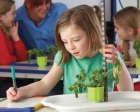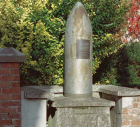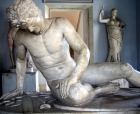Living Memory
Studying events within living memory can help young children to gain an early understanding of chronology and that history is made all of the time. It also helps them to understand the world and their place within it. Through this Key Stage 1 unit of study, children are introduced to historical concepts, vocabulary and representations through exploring the ways in which life has changed over the time of their parents, grandparents and great-grandparents. This can be used to reveal aspects of national events or changes where possible. Popular areas for this topic include family, toys, holidays, the climate, technology, school, among many others. In this section you will find articles and guidance to help you plan exciting and creative ways to introduce your children to the study of history.
-

Planning for 'Changes within Living Memory'
ArticleClick to view -

Role play and the past
ArticleClick to view -

Using 'Development Matters' in the Foundation stage
ArticleClick to view -

Using the back cover image: Westonzoyland War Memorial
ArticleClick to view -

Chronology: Developing a coherent knowledge
ArticleClick to view -

World War II evacuation project - A living history experience
ArticleClick to view -

Learning to engage with documents through role play
ArticleClick to view -

Using classic fiction to support the study of childhood in Victorian times
ArticleClick to view -

Oral history - a source of evidence for the primary classroom
ArticleClick to view -

A history of the world - 100 objects that tell a story
ArticleClick to view -

History...about lives and living
ArticleClick to view -

Introducing history at Key Stage 1: a view from the classroom
ArticleClick to view -

What was it like to live here in the past? Resourcing the local study
ArticleClick to view -

Oral history in primary schools
ArticleClick to view

